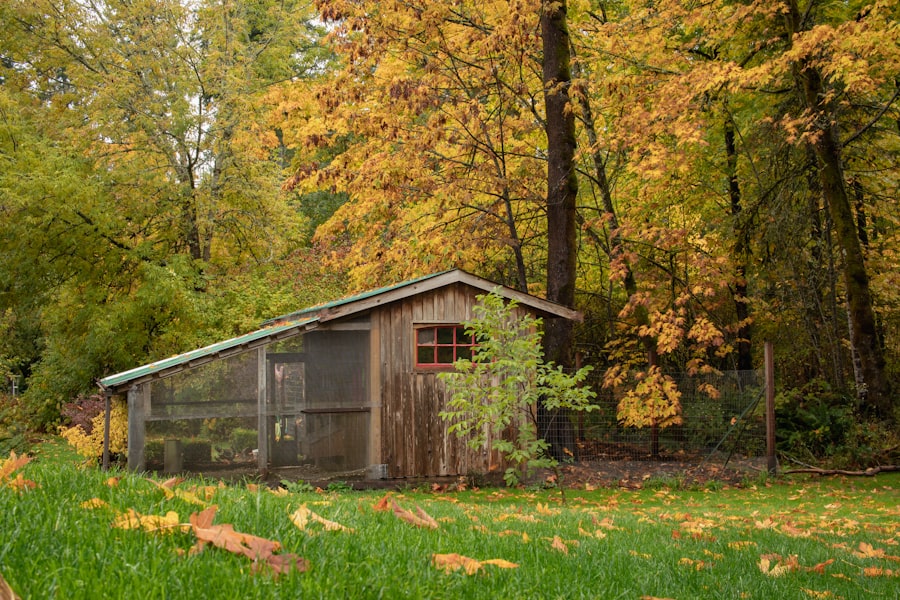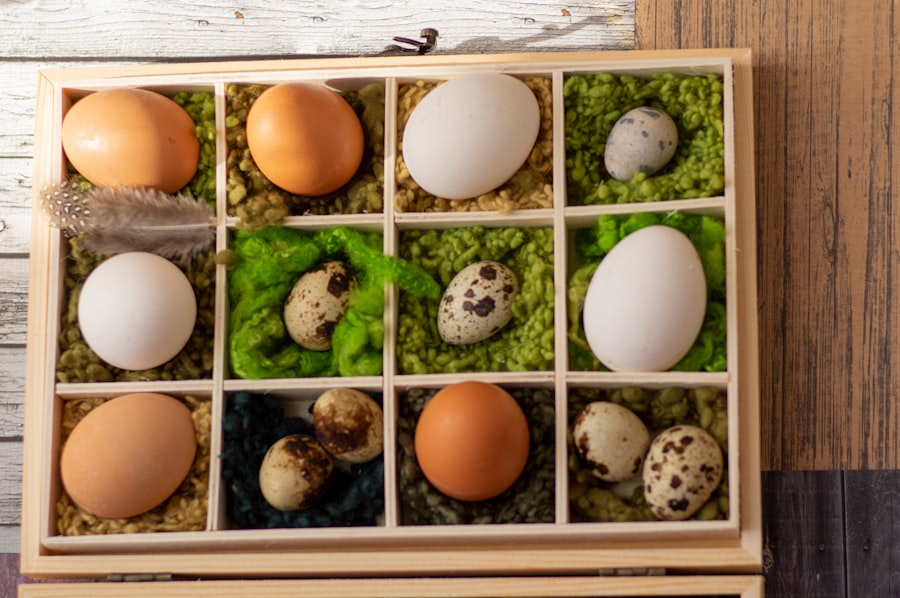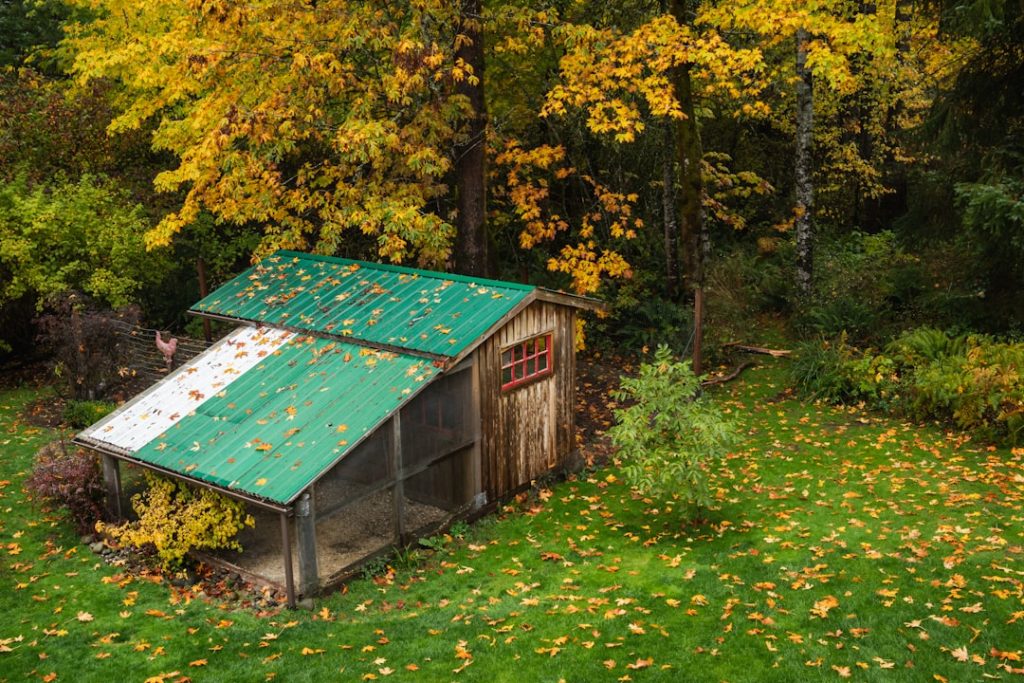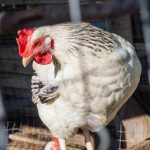When selecting chicken breeds for a backyard coop, several factors should be considered. Climate is a crucial aspect, as some breeds are better adapted to cold weather, while others thrive in warmer conditions. The purpose of raising chickens is also important, whether for egg production, meat, or dual-purpose use.
Different breeds have distinct characteristics suited to these purposes. For example, Rhode Island Reds are known for high egg production, while Cornish Cross chickens are favored for meat due to their rapid growth. Available space is another significant factor.
Some breeds are well-suited for free-ranging, while others adapt well to confined areas. For limited spaces, bantam breeds like Silkies or Polish chickens may be appropriate. Larger breeds such as Orpingtons or Australorps are suitable for more spacious environments.
Breed temperament is also worth considering, especially for families with children. Some breeds are known for their docile and friendly nature, while others may be more skittish. The choice of chicken breed for a backyard coop ultimately depends on the specific needs and preferences of the owner, taking into account factors such as climate, purpose, available space, and desired temperament.
Table of Contents
Key Takeaways
- When choosing a breed, consider factors such as climate, space, and purpose of raising chickens.
- Building a coop requires proper ventilation, insulation, and predator-proofing to ensure the safety and comfort of the chickens.
- Feeding and watering chickens should be done with high-quality feed and clean water to maintain their health and productivity.
- Proper care and maintenance involve regular cleaning of the coop, monitoring for signs of illness, and providing necessary supplements.
- Ensuring safety and security includes securing the coop from predators, providing adequate lighting, and implementing biosecurity measures to prevent diseases.
Building a Coop
Space Considerations
First and foremost, you’ll want to ensure that the coop provides adequate space for your chickens to move around and roost comfortably. The general rule of thumb is to allow at least 2-3 square feet of space per chicken inside the coop, and 8-10 square feet per chicken in the outdoor run area. This will help prevent overcrowding and reduce the risk of aggression and disease among the flock.
Ventilation and Insulation
In addition to space considerations, it’s important to provide proper ventilation and insulation in the coop. Good ventilation is essential for maintaining air quality and preventing moisture buildup, which can lead to respiratory issues and other health problems for the chickens. Insulation is also important, especially in colder climates, to help regulate the temperature inside the coop and keep the chickens warm during the winter months.
Predator-Proofing and Additional Features
Furthermore, the coop should be predator-proof, with secure latches and locks on doors and windows to prevent access from predators such as raccoons, foxes, and birds of prey. Finally, consider adding nesting boxes for egg-laying hens and perches for roosting at night. These elements will help create a comfortable and functional living space for your backyard flock.
Feeding and Watering

Proper nutrition is essential for keeping your backyard chickens healthy and productive. When it comes to feeding your flock, it’s important to provide a balanced diet that meets their nutritional needs at every stage of life. A good quality commercial feed formulated specifically for chickens is a great starting point.
Look for feeds that are high in protein (around 16-18%) for laying hens and lower in protein (around 12-14%) for non-laying hens or meat birds. Additionally, supplement their diet with fresh fruits and vegetables, kitchen scraps, and occasional treats like mealworms or scratch grains. In addition to providing a balanced diet, it’s crucial to ensure that your chickens have access to clean and fresh water at all times.
Water is essential for digestion, egg production, and overall health. Make sure to regularly clean and refill waterers to prevent contamination from dirt or debris. During hot weather, consider adding electrolytes or apple cider vinegar to their water to help keep them hydrated and healthy.
By providing a nutritious diet and access to clean water, you can help ensure that your backyard flock stays healthy and happy. Proper nutrition is essential for keeping your backyard chickens healthy and productive. When it comes to feeding your flock, it’s important to provide a balanced diet that meets their nutritional needs at every stage of life.
A good quality commercial feed formulated specifically for chickens is a great starting point. Look for feeds that are high in protein (around 16-18%) for laying hens and lower in protein (around 12-14%) for non-laying hens or meat birds. Additionally, supplement their diet with fresh fruits and vegetables, kitchen scraps, and occasional treats like mealworms or scratch grains.
In addition to providing a balanced diet, it’s crucial to ensure that your chickens have access to clean and fresh water at all times. Water is essential for digestion, egg production, and overall health. Make sure to regularly clean and refill waterers to prevent contamination from dirt or debris.
During hot weather, consider adding electrolytes or apple cider vinegar to their water to help keep them hydrated and healthy. By providing a nutritious diet and access to clean water, you can help ensure that your backyard flock stays healthy and happy.
Providing Proper Care and Maintenance
Caring for backyard chickens involves regular maintenance tasks to keep them healthy and comfortable. One important aspect of care is keeping the coop clean and free of waste buildup. Regularly remove soiled bedding from the coop floor and nesting boxes, as well as any uneaten food or debris from feeders and waterers.
This will help prevent odors, reduce the risk of disease, and create a more pleasant living environment for your chickens. Another key aspect of care is monitoring the health of your flock on a regular basis. Keep an eye out for any signs of illness or injury, such as changes in behavior, lethargy, abnormal droppings, or respiratory issues.
If you notice any concerning symptoms, it’s important to seek veterinary care promptly to address any potential health issues before they escalate. Additionally, providing regular dust baths for your chickens can help keep their feathers clean and free of parasites like mites or lice. Simply provide a shallow container filled with fine sand or diatomaceous earth in the coop or run area for your chickens to dust bathe in.
Caring for backyard chickens involves regular maintenance tasks to keep them healthy and comfortable. One important aspect of care is keeping the coop clean and free of waste buildup. Regularly remove soiled bedding from the coop floor and nesting boxes, as well as any uneaten food or debris from feeders and waterers.
This will help prevent odors, reduce the risk of disease, and create a more pleasant living environment for your chickens. Another key aspect of care is monitoring the health of your flock on a regular basis. Keep an eye out for any signs of illness or injury, such as changes in behavior, lethargy, abnormal droppings, or respiratory issues.
If you notice any concerning symptoms, it’s important to seek veterinary care promptly to address any potential health issues before they escalate. Additionally, providing regular dust baths for your chickens can help keep their feathers clean and free of parasites like mites or lice. Simply provide a shallow container filled with fine sand or diatomaceous earth in the coop or run area for your chickens to dust bathe in.
Ensuring Safety and Security
Ensuring the safety and security of your backyard flock is crucial for protecting them from predators and other potential hazards. One of the most important steps you can take is to secure the perimeter of your coop and run area with sturdy fencing that is buried at least 12 inches into the ground to prevent digging predators from gaining access. Additionally, consider installing predator-proof hardware cloth over windows and vents on the coop to prevent entry from smaller predators like raccoons or weasels.
Make sure that all doors are securely latched at night to prevent access from nocturnal predators like foxes or owls. Another important aspect of safety is providing adequate lighting around the coop area to deter predators from approaching at night. Motion-activated lights or solar-powered lights can help keep predators at bay while also providing visibility during evening chores.
Ensuring the safety and security of your backyard flock is crucial for protecting them from predators and other potential hazards. One of the most important steps you can take is to secure the perimeter of your coop and run area with sturdy fencing that is buried at least 12 inches into the ground to prevent digging predators from gaining access. Additionally, consider installing predator-proof hardware cloth over windows and vents on the coop to prevent entry from smaller predators like raccoons or weasels.
Make sure that all doors are securely latched at night to prevent access from nocturnal predators like foxes or owls. Another important aspect of safety is providing adequate lighting around the coop area to deter predators from approaching at night. Motion-activated lights or solar-powered lights can help keep predators at bay while also providing visibility during evening chores.
Handling Health and Hygiene

Keeping the Living Environment Clean
One important aspect of maintaining hygiene is keeping their living environment clean by regularly removing soiled bedding from the coop floor and nesting boxes. This helps to prevent the buildup of bacteria and diseases.
Practicing Good Biosecurity
Additionally, practice good biosecurity measures by limiting exposure to potential disease vectors such as wild birds or rodents that can carry diseases like avian influenza or salmonella. This can be achieved by keeping feeders elevated off the ground to prevent contamination from droppings, and storing feed in rodent-proof containers to reduce the risk of disease transmission.
Controlling Parasites Naturally
Regularly inspect your flock for signs of parasites such as mites or lice, which can cause discomfort and health issues if left untreated. Provide regular dust baths with diatomaceous earth or wood ash to help control parasites naturally. By following these simple practices, you can help keep your backyard flock happy, healthy, and disease-free.
Understanding the behavior of your backyard flock can help you create a harmonious environment where they can thrive socially. Chickens are social animals that thrive in groups known as flocks. They have a complex social structure with established pecking orders that determine hierarchy within the group.
It’s important to provide enough space within the coop and run area so that all members of the flock have room to move around without feeling crowded or stressed. Additionally, provide multiple feeding stations and waterers to prevent competition over resources. Observing their behavior can also help you identify any potential issues within the flock such as bullying or aggression between individuals.
If you notice any signs of aggression or bullying within the flock, consider providing distractions such as hanging treats or toys in the run area to redirect their focus away from negative behaviors. Understanding the behavior of your backyard flock can help you create a harmonious environment where they can thrive socially. Chickens are social animals that thrive in groups known as flocks.
They have a complex social structure with established pecking orders that determine hierarchy within the group. It’s important to provide enough space within the coop and run area so that all members of the flock have room to move around without feeling crowded or stressed. Additionally, provide multiple feeding stations and waterers to prevent competition over resources.
Observing their behavior can also help you identify any potential issues within the flock such as bullying or aggression between individuals. If you notice any signs of aggression or bullying within the flock, consider providing distractions such as hanging treats or toys in the run area to redirect their focus away from negative behaviors. In conclusion…
Raising backyard chickens can be a rewarding experience that provides fresh eggs,
If you’re interested in learning more about the breeding habits of different poultry, check out this article on whether quails sit on their eggs. It’s important to understand the unique behaviors of each type of bird when considering adding them to your flock.
FAQs
What are the basic requirements for keeping chickens?
Chickens require a secure coop or housing, access to fresh water, proper nutrition, and protection from predators.
What should be included in a chicken coop?
A chicken coop should include roosting bars, nesting boxes, proper ventilation, and protection from the elements and predators.
What do chickens eat?
Chickens require a balanced diet of commercial chicken feed, supplemented with kitchen scraps, grains, and greens.
How do you protect chickens from predators?
To protect chickens from predators, it is important to secure the coop with strong fencing, lock the coop at night, and use predator deterrents such as motion-activated lights or sound devices.
How do you keep chickens healthy?
Keeping chickens healthy involves providing them with a clean living environment, regular access to fresh water, proper nutrition, and regular health checks.
How do you handle chicken waste?
Chicken waste can be composted and used as fertilizer for gardens. It is important to regularly clean the coop to prevent the buildup of waste and reduce the risk of disease.
Meet Walter, the feathered-friend fanatic of Florida! Nestled in the sunshine state, Walter struts through life with his feathered companions, clucking his way to happiness. With a coop that’s fancier than a five-star hotel, he’s the Don Juan of the chicken world. When he’s not teaching his hens to do the cha-cha, you’ll find him in a heated debate with his prized rooster, Sir Clucks-a-Lot. Walter’s poultry passion is no yolk; he’s the sunny-side-up guy you never knew you needed in your flock of friends!







